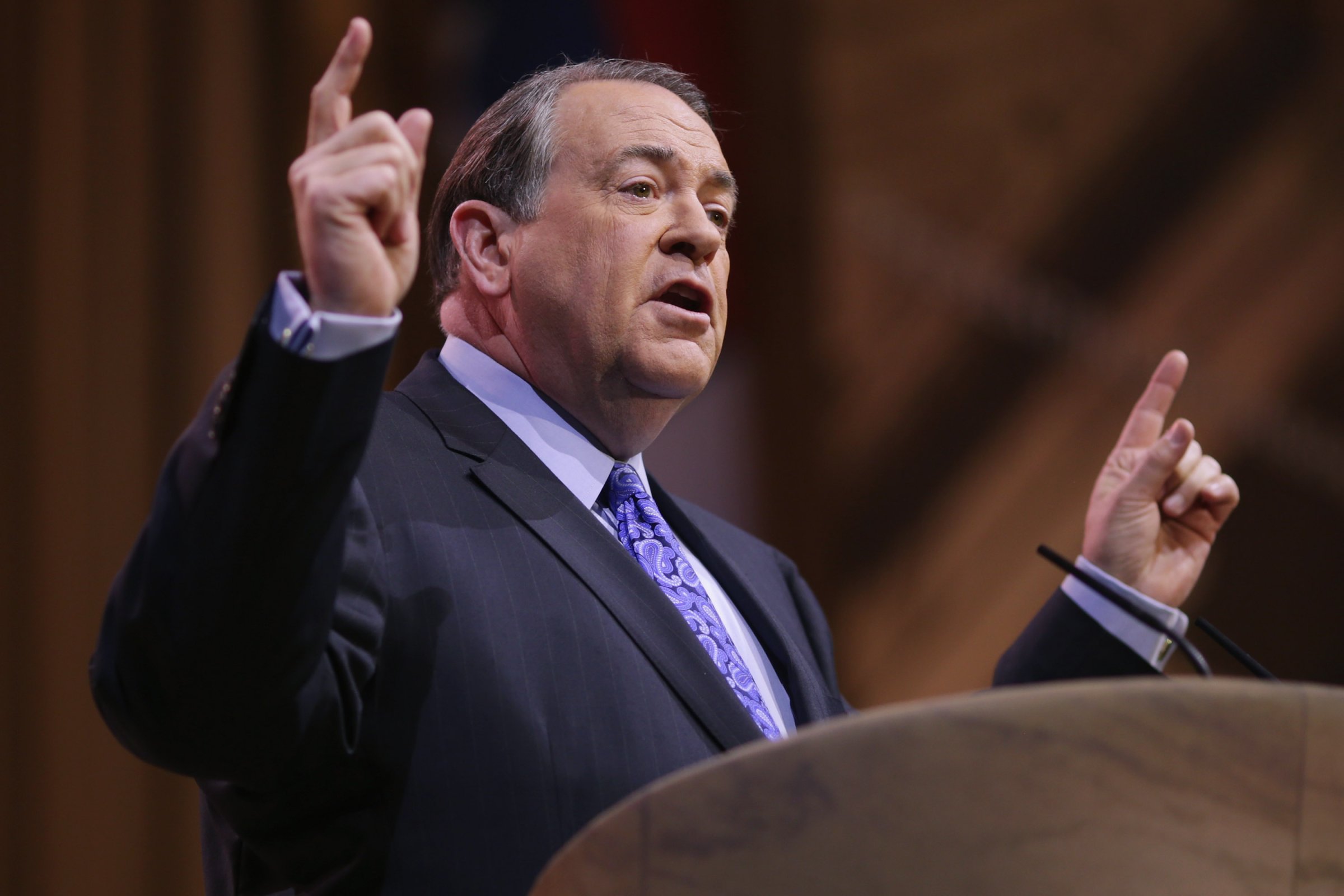
Despite a long, slow decline in religious participation among Americans, do not expect Christian conservatives to light a candle rather than curse the darkness when it comes to politics. At least two likely contenders for the Republican presidential nomination, Louisiana Gov. Bobby Jindal and former Arkansas Gov. Mike Huckabee, are calling for nothing short of a religious revival. “We have tried everything else,” Jindal recently told a group of Christian and Jewish leaders in Iowa, “and now it is time to turn back to God.”
Yeah, no, especially when it comes to politics. We really don’t need more moral instruction and biblical exhortation from elected leaders. Most indicators of social dysfunction—such as crime, sexual assault, and bullying—are declining. When it comes to politics, what we need is restrained spending, reduced and simplified regulation and taxation, and an embrace of social tolerance that allows diverse individuals to peacefully get on with their lives. If Republicans choose to nominate a candidate who talks as if voters are sinners in the hand of an angry God, they will alienate independents and even conservatives who are forming a large and growing “leave us alone coalition.”
As Americans turn away from religion, the hot-button issues that once divided voters are finding wide acceptance. Nearly 40% of Americans are “unchurched” and “essentially secular,” says religion researcher David Kinnaman, who oversaw a 2014 survey of more than 20,000 respondents. That’s only going to continue. Baby boomers are less devout than their parents, and Gen-Xers and Millennials are less observant still. “The younger the generation, the more post-Christian it is,” he told Religious News Service last October.
At the same time, gay marriage, pot legalization, and even abortion are becoming settled issues among voters. In 2004, just 42% of Americans favored recognizing gay marriage as equal to heterosexual unions. The figure today is 55%, according to Gallup. The trend is with regards to pot legalization, which a majority also supports. When it comes to abortion, about equal numbers of us describe ourselves at pro-choice and pro-life (each around 46%), but there has been no rise in support for banning the practice since it was legalized in the 1970s.
While there’s no reason to think that voters are clamoring for more religion in politics, Mike Huckabee will make exactly such a move the cornerstone of his candidacy if he chooses to run for president. The former governor has taken a leave of absence from his gig as a Fox News host while he ponders his options and promotes his new book, God, Guns, Grits, and Gravy. He continues to view gay marriage as an abomination and just last fall threatened to leave the Republican Party if it did not “grow a spine” and defend the traditional definition of marriage.
That might sell a lot of books and draw an intense and loyal following on Fox News, but it has nothing to do with most people’s top political concerns. By vast majorities, Americans mostly care about things such as the economy, job creation, health care, and government spending. Those are the concerns that must be front and center for any successful candidate and party.
Which isn’t to say that politicians can’t be religious while advancing the limited government agenda that most Americans support. Sen. Rand Paul of Kentucky is a bible-believing Christian who attended Baylor University, a Baptist institution. Yet the reason Paul is among the top-tier Republican hopefuls after just a few years in office isn’t because he can quote the Bible chapter and verse. It’s because he has foregrounded his libertarian bona fides by questioning the federal government’s spying on innocent citizens, refusal to rein in spending, willingness to intervene militarily all over the world, and continued enthusiasm for a failed war on drugs. People want less government and less intrusion on their day to day lives, not government bureaucrats weighing their children at public school and lecturing them about diet, as Mike Huckabee supports.
Similarly, the reason why Bobby Jindal, a Roman Catholic, is popular in Louisiana isn’t because he says he once performed an exorcism while an undergraduate. It’s because he has governed pragmatically and effectively, especially on issues such as school choice. As the libertarian Cato Institute notes in its latest report card on governors, “Jindal has been tight-fisted on spending,” the number of state employees is down 18% since he took office, and he opposes expanding Medicaid under the Affordable Care Act.
It is a bizarre paradox that displays of religiosity have become increasingly public and de riguer in GOP politics as Americans turn away from organized religion. Republicans won big in the midterms not because they are the party of God but because President Obama and the Democrats overreached, overspent, and overregulated over the past few years. Republicans can win the White House in 2016, but only if they put forth a powerful agenda to address worldly problems while leaving religion where it belongs: in houses of worship.
Nick Gillespie is the editor in chief of Reason.com and Reason.tv and the co-author with Matt Welch of The Declaration of Independents: How Libertarian Politics Can Fix What’s Wrong with America.
More Must-Reads from TIME
- Why Biden Dropped Out
- Ukraine’s Plan to Survive Trump
- The Rise of a New Kind of Parenting Guru
- The Chaos and Commotion of the RNC in Photos
- Why We All Have a Stake in Twisters’ Success
- 8 Eating Habits That Actually Improve Your Sleep
- Welcome to the Noah Lyles Olympics
- Get Our Paris Olympics Newsletter in Your Inbox
Contact us at letters@time.com